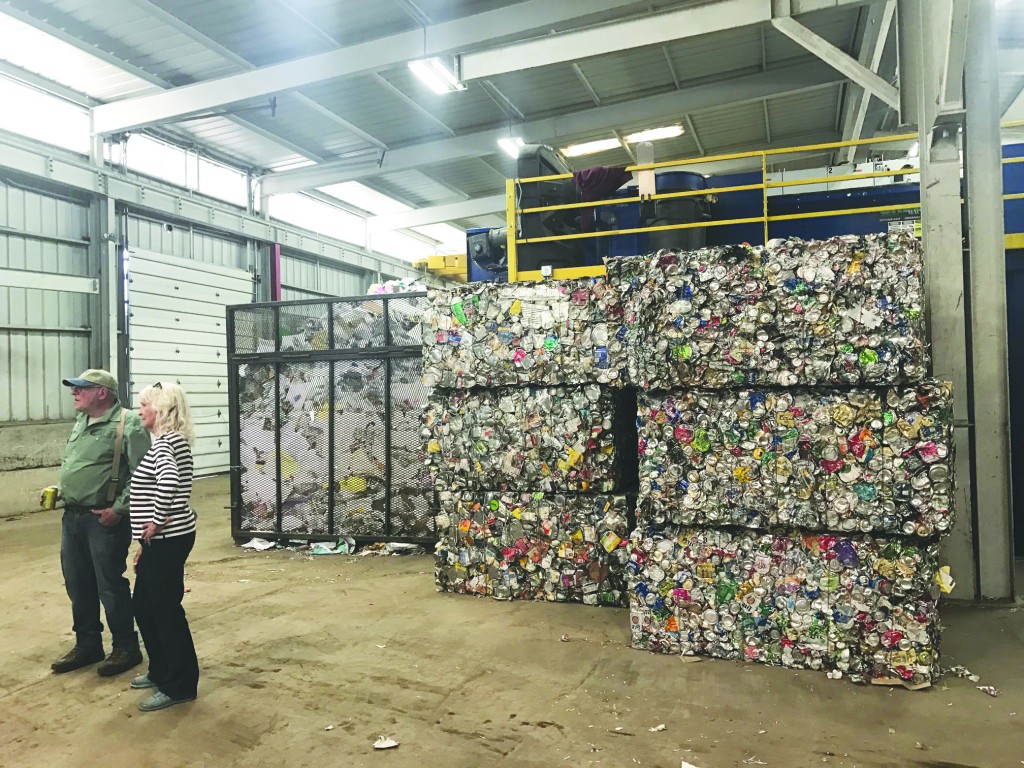Recycling tour for Valley officials- learn new perspectives

County Commissioners and members of San Luis Valley’s recycling team attending a two-day tour to see first-hand how recycling gets done in southern Colorado.
The tour scheduled on May 30 and 31, represented a product of the San Luis Valley Waste Diversion Study presented to commissioners and other officials by the San Luis Valley Ecosystem Council (SLVEC) and Conejos Clean Water (CCW) non-profit agencies to expand and improve recycling services across the region. In order to plan for the future, on-site visits were intended to educate and inform local officials and business leaders on various operational practices currently in use, technical advancements in the recycling industry, market concerns, public cooperation, workforce, and the type of infrastructure and equipment needed to make it happen.
County leadership on the tour was represented by commissioners Helen Sigmond, Alamosa; Tim Lovato, Saguache; Scott Lamb, Mineral; and Linda DeHerrera, Conejos County’s Land Use administrator. Other participants included May Engquist, SLVEC board member; CCW’s Co-Director Anna Lee Vargas; and John Stump, project developer.
The event included guided walk-throughs of recycling facilities with service areas centered in Poncha Springs, Cañon City, Woodland Park, and the Bestway Material Recovery Facility (MRF) and its transfer operation in Colorado Springs. These facilities have invested extensively in the MRF systems and infrastructure to provide the final sorting, handling, and baling of materials ready for shipment to end markets and rely mainly on single-stream collection where different types of materials can be mixed together but eventually have to separated out to be sold to markets.
“This finally gave us a chance to understand what it meant to have an MRF operation which can separate just about anything you want out of a single-stream collection, and the design and function of transfer stations which supply the MRF,” said Chris Canaly, SLVEC director and organizer of the event.
A trend in the industry for single-stream has increased recycling participation by shifting most of the burden of sorting recyclables to the MRF operator, but this presents the added burden in the recovery process to ensure a minimum of contamination acceptable to end markets. Due in part to contamination issues, China as the dominant end market for cardboard, paper products, and other recyclables has cut off trade in recyclables, and the industry is adjusting to slower turnover and finding new marketing channels for its products.
More attention is also being placed on finding local end markets, or “closed loop” systems for materials which eliminates the high cost of transportation, and this is being done at one establishment in Cañon City which converts office paper to cellulose.



